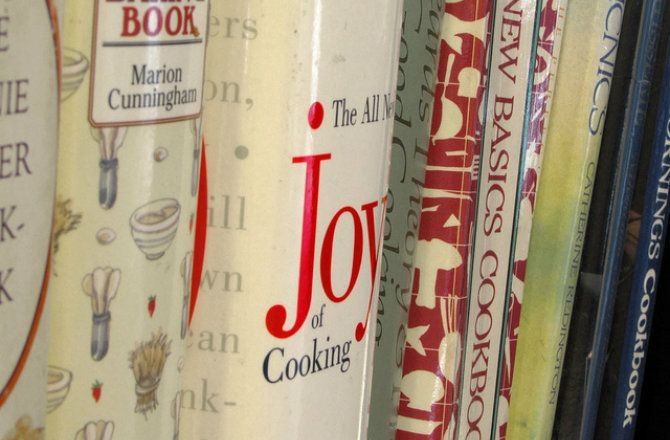Super Niche Cookbooks
These days every dude with a whisk and a keyboard is a food blogger, but writing about what we eat is actually a relatively young profession. Before 1824 in America, almost nothing beyond reprints of English recipe manuals was published. Then Mary Randolph, a preeminent home economist, produced The Virginia House-wife, a book whose recipes document traditional Southern specialties like cornbread and okra soup. "Let everything be done at the proper time, keep everything in its proper place, and put everything to its proper use," she advises readers.
From that moment on, it seems, there was a breakdown of what scholars refer to as the oral tradition of food-sharing. In other words, instead of mothers passing on their ancient and beloved family recipes to their daughters, young women in America's post-Civil War industrial age were moving many miles away from the farm and the home to go to work.
By the mid-1930s, the convenience packaged food industry had been born and The Joy of Cooking had been released–and cookbook publishing hasn't been the same since. Cookbooks, though, are a curious business. Originally designed as storehouses for nothing so much as the formulas of the meals that sustain us, they are now often compared to novels in terms of their status as night-table reading.
In truth, most of today's cookbooks are aspirational, featuring food that, no matter how humble, has been so artfully conceived and photographed as to inspire either awe—wow, macaroni and cheese studded with priceless fungi!—or crushing insecurity—no matter how many times I form it, my xiaolongbao always falls apart!—depending on how you see the glass.
Some cookbooks, of course, are in a class of their own. These are the single-subject niche volumes, which have been a publishing trend for a few years now. Books like these—you know, the ones that are devoted to subjects like deviled eggs, lasagna, or the low-country staple dish (just one dish!) shrimp 'n' grits—take cookbooks to the most achingly specific level.
The question isn't whether the world needs a book committed only to, say, popcorn or breakfast cereal. It's: How far can a theme reasonably stretch? Herewith, Herewith, a slideshow of the top 12 super-niche cooking guides, all of which prove that no good dish goes unpunished.
